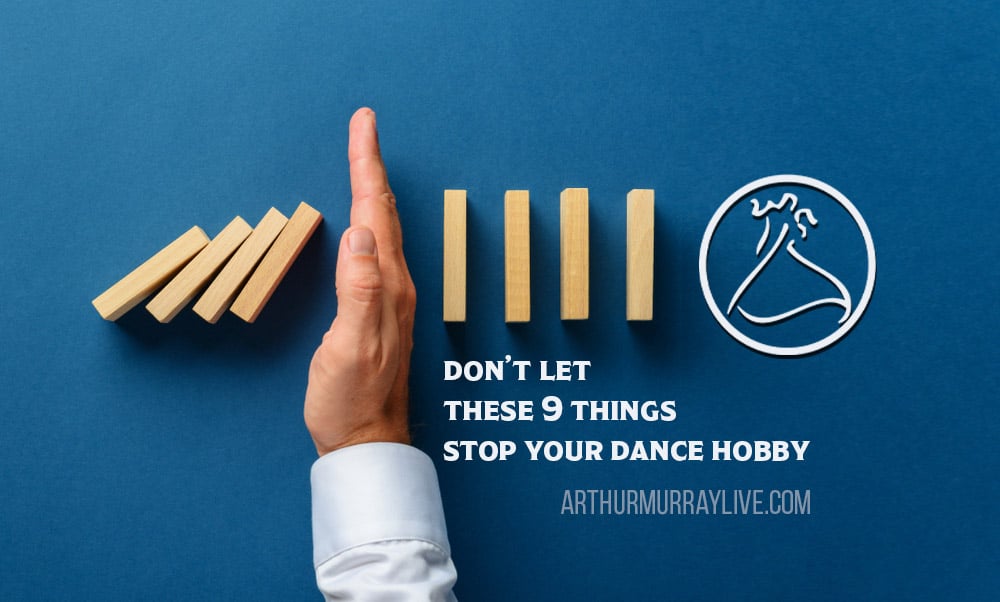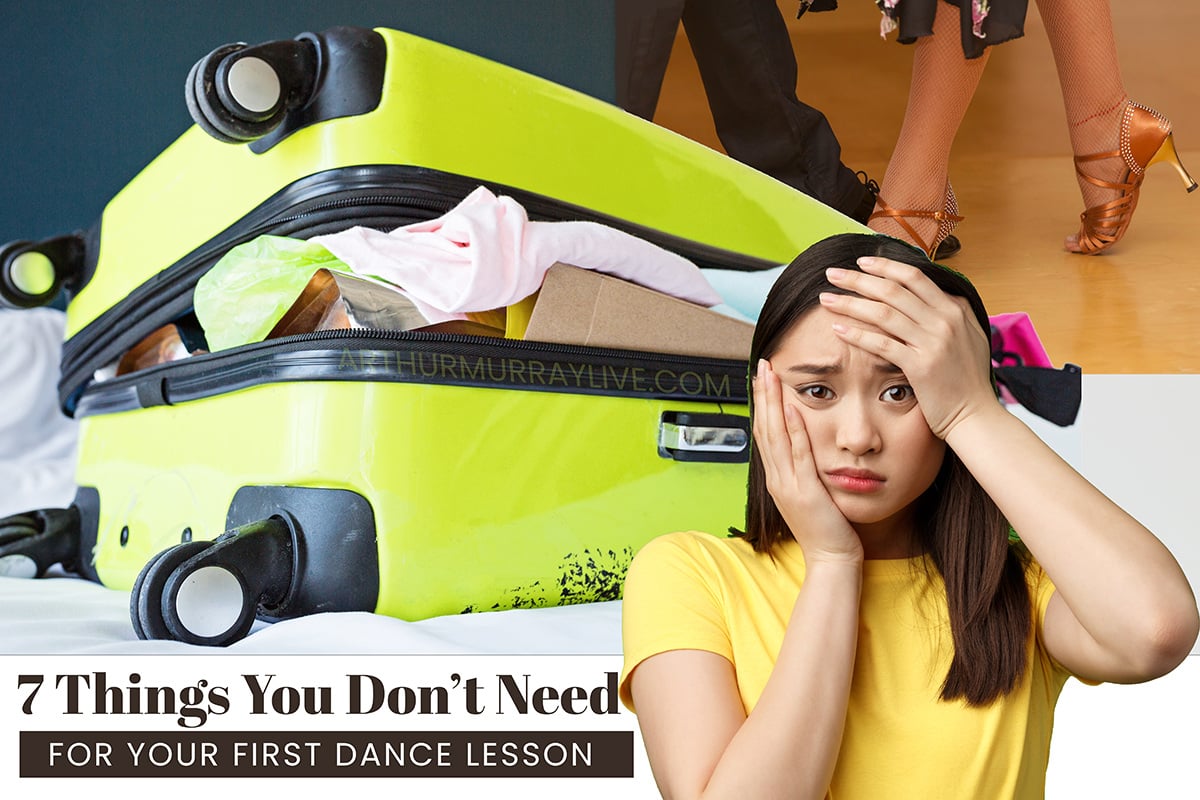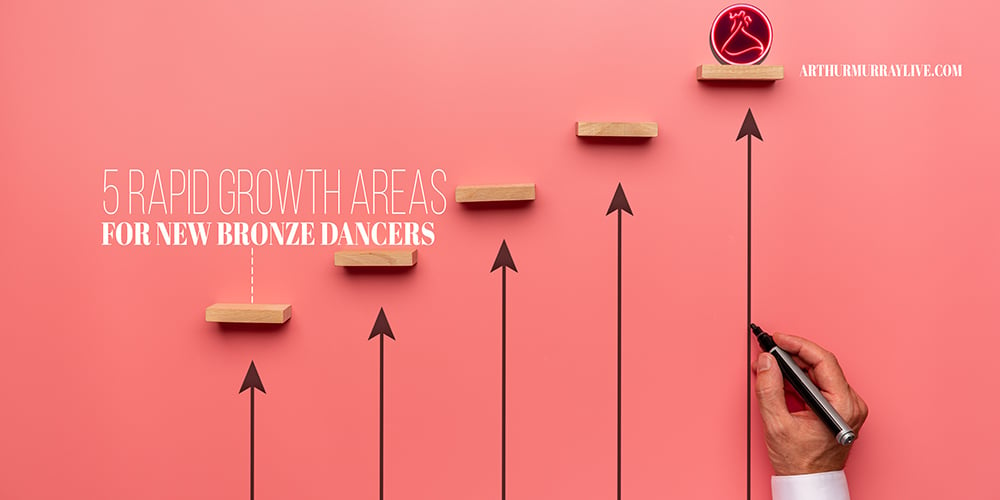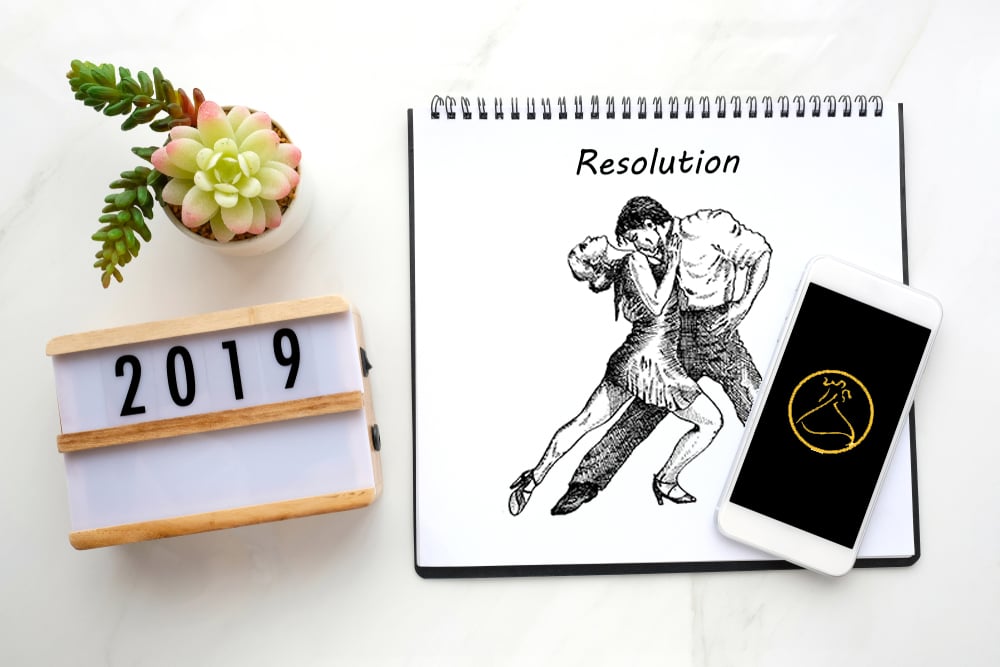9 Things That Can Stop Your Dance Hobby Before it Starts
Whether you're considering dance lessons or already consider dancing a hobby, there is one recurring villain in your personal dance narrative: Words.
We all have a little voice in our heads that may pipe in to protect us from harm, but in the case of dancing, it can also prevent us from enjoying a great hobby.
Here are 9 things that you may have heard, or even listened to, that we hope can no longer influence your dance goals moving forward.

1. I have no rhythm
This is a common concern from many new or potential dancers and the best part is: It's not true. Your heart has a rhythm, your feet have a rhythm when you're walking, and you don't need to be the percussionist in a Latin jazz band to become an excellent dancer.
Bottom Line: At Arthur Murray, we'll start by teaching you the timing, and as you progress, that will develop into rhythmical movement.
2. I don't have a dance partner
Unfortunately, this concern has stopped far too many people from enjoying their dance hobby. What many people don't realize is that you do not need a dance partner to start your dance hobby. In fact, you learn faster when you're working one on one with a professional.
Bottom Line: No partner, no problem. This concern will only stop you as long as you believe it to be true.
3. I don't want to look like someone on TV
Let's be honest, if you were immediately as good of a dancer as someone on TV, you probably wouldn't be too upset about it. But at Arthur Murray, your dance hobby is customized to your desired level of expertise. Whether you want to blend in and survive, or stand out and shine - it's completely up to you.
Bottom Line: Your dance goals are our dance goals.
4. Where am I ever going to use dancing?
Anytime you're on the outside of a hobby looking in, a lot of practical questions can emerge that you may not have the answers to: "Where am I going to use this?", "Does this new hobby fit into my life?" etc.
If you have successfully added a hobby to your life, you realize that once you have jumped in, most of those questions have answers. Our students find far more places to use their dance skills once they've started taking lessons than before. The same can be said for you. Once you learn, a world of hidden dance destinations will begin to materialize - or your teacher can give you some tips too.
Bottom Line: Dance destinations materialize faster for dancers than non-dancers.
5. I don't want to make a fool of myself
Anytime you're stepping into something new, the imposter syndrome will operate at the peak. This can include the worry that goes along with taking your first dance lesson, or just the thought of it.
The best part with Arthur Murray is that your instructors understand that and will have you dancing within the first five minutes of your first appointment. Not to mention, they are some of the greatest customer service representatives in the world and will help to put you at ease, get you smiling, and making your transition to the world of dancing a great experience.
Bottom Line: It's only without lessons where dancing can make you feel exposed or foolish.
6. I'll probably be the worst dancer there.
Similar to #5, the feeling of embarrassment associated with your first dance lessons can halt you from taking your first step through the door. The greatest part is that our company has helped people of all backgrounds and backstories become great dancers.
The curriculum we follow has helped new dancers for over 100 years because it is fun to learn, quick to take hold, and easy to understand. Even if you feel like you might be the worst, give us 45 minutes and we'll prove otherwise.
Bottom Line: The worst dancers are the ones that refuse lessons.
7. I don't have any dance experience
It's been said that J.K. Rowling, author of the Harry Potter books, had the rudimentary timeline at their wizarding school for all of the main characters. What she didn't have was all the books finished.
The moral of this story? You can't begin a process with everything already figured out. So why should learning to dance be any different? You may not have any dance experience, or dance lesson experience, but why should that stop you? Every great thing you've accomplished in your life still had a day one and we can't wait to meet you on day one of your Arthur Murray journey.
Bottom Line: Treat your first lesson as Day One, not One Day.
8. I should have started sooner.
As much as we wish we could go back in time and encourage all of our students to start their dance lessons earlier, the biggest lesson with this one is this: Why wait any longer?
Any great relationship, new restaurant, hobby, or band you've discovered may trigger a sense of regret that you didn't find it earlier. Just because you discovered the idea of dance lessons now, and not when you were younger, should not in any way preclude you from enjoying them. Ballroom dancing has a much longer shelf life than any other form of dancing and there's plenty of time to make the most of it.
Bottom Line: Use the past regret as your current motivation
9. I have two left feet
We saved the best, and most frequently used concern, for last. As long as there has been ballroom dance lessons, there's been the concern of being born with "two left feet." If we break this down to it's most essential parts we find a cute and carefree explanation for why someone isn't interested in dancing. Or, looking a little closer, a negative assessment of a skill they have yet to pursue.
For parents, they may hear something similar with their children assessing a particular subject in school. For employers, it may be a task or position that someone has yet to experience. In each case, a quick, negative assessment can set the expectations low, but also set a barrier to building the skill.
Instead, what if we looked at assessments differently? What if we added a solution to the end of the stated problem? What if "I have two left feet" was converted into something more productive like "I have two left feet... and that's why I'm starting my dance lessons"? The only limitation to this statement is if you leave out the solution and treat it like a calling card.
Bottom Line: You can convert this debilitating concern into something more productive by adding the solution to the statement.
Final Thought
Make a mental image of two empty jars. One is labeled "concerns" and the other one is labeled "action." Each time you think of a statement to rationalize why dancing isn't right for you, it's like putting a penny in the concerns jar.
If you've had enough time, it wouldn't be much of a stretch to imagine that you'd need more and more jars to account for all the pennies of concerns.
But a single moment of action can tip the pennies in a better direction. Action can cancel out a lifetime of investing in concerns and replace it with a plan to solve them.
If you have yet to take action on your first dance lesson, consider this your opportunity to replace concern with action and to invest in a solution instead of accepting the problem.















